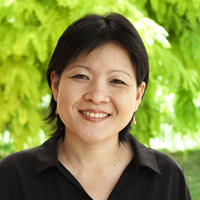Chwee Beng LEE
Western Sydney University, School of Education, Faculty Member
- I am interested in learning technologiesedit
Research Interests:
Research Interests:
This study explores how language learners' enjoyment and emotion regulation manifest themselves in online collaborative learning. In the study, we collected multiple data during online collaboration tasks carried out by six Chinese... more
This study explores how language learners' enjoyment and emotion regulation manifest themselves in online collaborative learning. In the study, we collected multiple data during online collaboration tasks carried out by six Chinese undergraduate EFL learners in two 3-member groups, facilitated by a social media app. We used an idiodynamic approach to examine the moment-to-moment evolution of enjoyment at both the individual and group levels, and carried out semi-structured interviews and video recordings of the online group conversation to study the mechanisms of emotion regulation underlying the group-level enjoyment in both groups. The findings documented the dynamic evolution of enjoyment within and across individuals during the collaboration tasks. Participants used different but mutually supported types of regulation such as self-, co-, and socially shared regulation to achieve group-level enjoyment. Within the interplay of these regulation types, participants mostly engaged in shared regulation processes including joint planning, monitoring, and evaluating. The study also revealed that participants adopted emojis, together with words, to realize emotion regulation in online collaborative settings. The findings will be helpful to teachers and learners in optimizing their collaborative language activities, especially those that are online.
Research Interests:
Mobile learning technologies are spreading rapidly in educational institutions throughout the world. Although research findings concerning the efficacy of mobile technologies for improving student outcomes are generally promising, there... more
Mobile learning technologies are spreading rapidly in educational institutions throughout the world. Although research findings concerning the efficacy of mobile technologies for improving student outcomes are generally promising, there are still significant gaps in the research literature, particularly data from direct observational studies. This empirical investigation focused on how students made use of tablet devices and digital pens for learning Chemistry in an undergraduate university course. Observational data in the form of videos and static images, as well as, interview responses, were the main sources of data collected for the study. Activity theory was employed as the guiding theoretical framework to analyse and interpret the data. Several themes emerged from the data analyses, including the affordances of digital pen technology for facilitating reflective thinking, flexibility , peer collaboration, emerging learning and focused learning. It was also found that the use of these mobile technologies was contextualized, dependent on individual differences, and had challenges, for example, there was limited synchronicity between the operational design of the mobile devices and natural human movement. One of the main implications of the research is that when higher education institutions consider the potential benefits and challenges associated with mobile technologies they should take account of the interactions that occur between components within a system including, students, technological devices, and emerging learning processes.
Research Interests:
The intent of this paper is to suggest the dimensions of intentional learning and identify the key cognitive benefits of systems modelling with regard to intentional learning through a review of related studies. The authors propose that... more
The intent of this paper is to suggest the dimensions of intentional learning and identify the key cognitive benefits of systems modelling with regard to intentional learning through a review of related studies. The authors propose that intentional learning occurs when learners realize the need for refining their conceptual understanding, relates learning to their everyday experiences, possibly through everyday problem solving, and activates or develops metacognitive processes in the course of learning. When engaged in intentional learning, learners’ epistemological beliefs are also challenged. The authors also discuss how systems modelling could potentially foster domain knowledge, systemic thinking and conceptual change. The second section of this paper describes a technology-enhanced learning environment that fosters intentional learning.
This paper is an initial effort to review the reciprocity between the theoretical traditions of conceptual change and knowledge building by discussing the underlying epistemological assumptions, objectives, conceptions of concepts and... more
This paper is an initial effort to review the reciprocity between the theoretical traditions of conceptual change and knowledge building by discussing the underlying epistemological assumptions, objectives, conceptions of concepts and ideas, and mechanisms that bring forth the respective goals of these two traditions. The basis for generating clarity between both traditions provides the argument for a powerful framework for advancing learning. Three key points are discussed in support of such a framework. First, the paper carefully examines how knowledge building explicates the recent theory of conceptual change by acknowledging the need to consider both sociocultural
and cognitive aspects in the knowledge acquisition process. Next, the contribution of knowledge building in this perspective is its emphasis on knowledge building discourse. Finally, the discussion incorporates the epistemic framework espoused by Murphy to complement the knowledge building approach.
and cognitive aspects in the knowledge acquisition process. Next, the contribution of knowledge building in this perspective is its emphasis on knowledge building discourse. Finally, the discussion incorporates the epistemic framework espoused by Murphy to complement the knowledge building approach.
This study investigated the change in Singaporean pre-service teachers' epistemological beliefs and beliefs about learning and teaching over the course of a teacher preparation program. An online survey was administered during the... more
This study investigated the change in Singaporean pre-service teachers' epistemological beliefs and beliefs about learning and teaching over the course of a teacher preparation program. An online survey was administered during the first week of a nine-month ...
Research Interests:
Research Interests:
Research Interests:
Research Interests:
Purpose–This paper aims to examine pre-service teachers' self-reported intention to use technology by employing the Theory of Planned Behavior (TPB) as the research framework. Design/methodology/approach–In total, 157 student... more
Purpose–This paper aims to examine pre-service teachers' self-reported intention to use technology by employing the Theory of Planned Behavior (TPB) as the research framework. Design/methodology/approach–In total, 157 student teachers completed a survey ...
